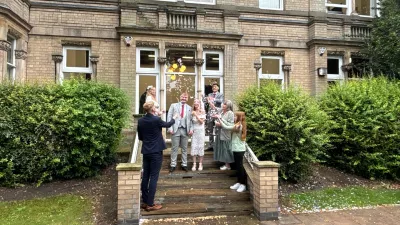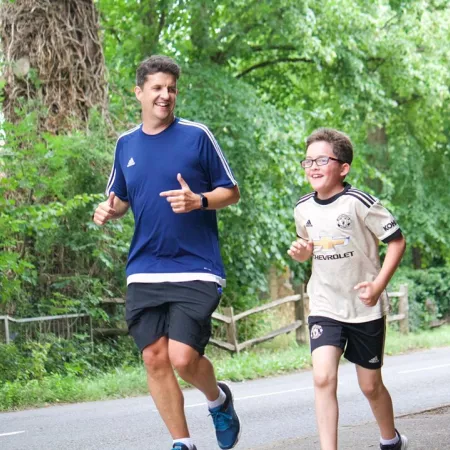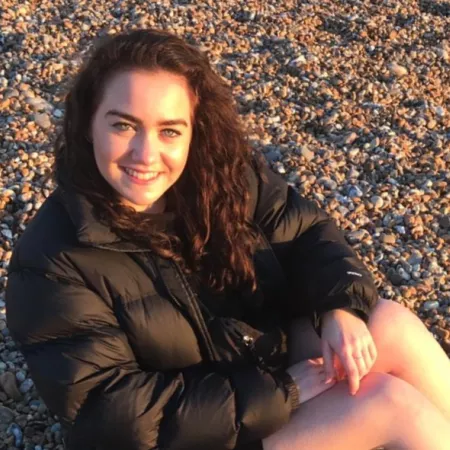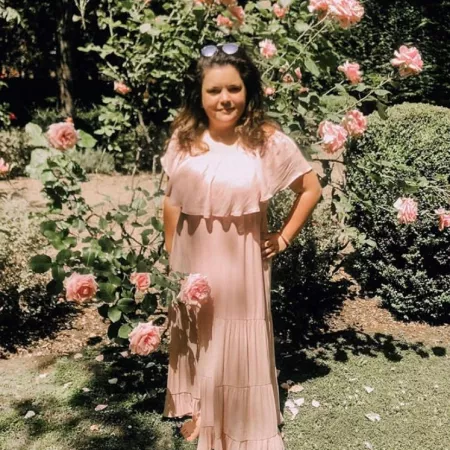My journey with epilepsy started when I was 16, though the road to a diagnosis was anything but simple. I was preparing for my math GCSE mock exams, staying at my friend’s house, when the first major incident happened. I remember feeling stressed about the exam, but the next thing I knew, I had woken up in the middle of the night feeling confused and on the way to hospital with my mum beside me—I had had a seizure.
That was the beginning of a long and often frustrating journey. The doctors weren’t sure if that was my first seizure because I had never slept close to anyone before who could have noticed. From there, I was scared and sleeping next to my mum every night, more seizures followed (both in the daytime and night), but the path to understanding what was happening to me was far from clear.
My mum was the driving force during this time, pushing to get answers when I was too unwell or too out of it to advocate for myself. She would often take me to A&E, and we’d sit there for hours waiting to be seen. I don’t remember much of the time between when I was 16 and 19, as my memory of that period is hazy due to the seizures, hospital visits, and medications. Doctors initially thought my seizures were psychogenic, related to stress, rather than epilepsy, which was incredibly frustrating for both me and my family.
Doctors initially thought my seizures were psychogenic, related to stress, rather than epilepsy, which was incredibly frustrating for both me and my family.
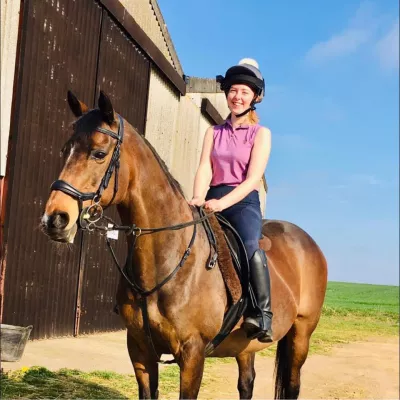
I was put on different medications, and my neurologist at Lincoln kept switching them, trying to find one that worked. But nothing seemed to help, and because my case was tricky, I became more of a mystery than anything else. Since the medications didn’t work, they started assuming my seizures were psychological, which left me feeling even more lost.
Eventually, I received the news that I could have a VNS device fitted and we also asked to be transferred to Sheffield for better care. The difference was night and day, and I finally felt like I had a care team that understood me. But even after being under their care, I still haven’t been given a definitive answer about what type of epilepsy I have. Every time I receive a letter from the hospital, it lists a different type of epilepsy, which leaves me confused and unsure of what exactly I’m dealing with.
This lack of a clear diagnosis has affected me in unexpected ways. For example, when I started my teacher training this September, the team asked me how they could support me and what type of epilepsy I have. I had no idea what to tell them because I still don’t know myself. It’s hard to explain to people how to help when you’re not sure of the answers.
My seizures have always varied in their presentation. Some were witnessed by my mum, but I was never aware of them happening, the only warning signs I get are the occasional butterflies in my stomach. Doctors told her to film the seizures, but in the moment, her focus was always on taking care of me, not recording it. I think the whole process was harder on her than it was on me because I was often too out of it to fully grasp what was happening.
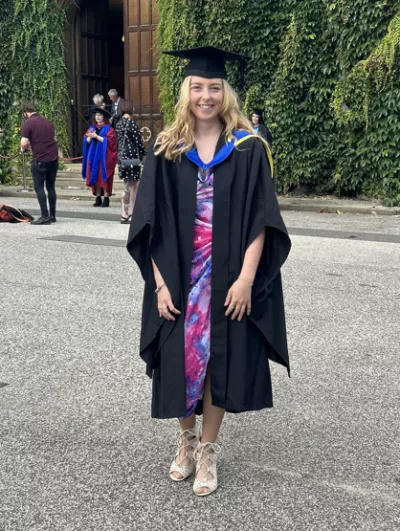
I eventually received a diagnosis of epilepsy, but not without a lot of trial and error. After a particularly bad seizure, my mum took me to A&E, and it became clear that I had epilepsy—though they still couldn’t tell me exactly what kind. I’ve had multiple tests, including EEGs and MRIs, but none of them have provided the definitive answers I was hoping for.
Despite all the frustrations, I’m in a much better place now. I’ve been seizure-free for three years, which feels like a huge accomplishment. Earlier this year, I even passed my driving test in January and the most exciting thing is I got married in August! In 2023 I graduated from university in with a First Class Degree, being the only person on my course to do so. I have now started my teacher training and it finally feels like my life is moving in the right direction after having so many setbacks when I was in my teenage years. However, there’s still a lingering frustration over not having a clear diagnosis. I had one neurologist in Sheffield who was determined to get me a proper diagnosis, but he retired before anything came of it. The new neurologist mentioned brain surgery as a potential next step, but that’s not something I’m willing to risk, especially since I’ve been doing so well lately.
At this point, my focus is on living my life. While the uncertainty about my exact diagnosis is frustrating, I’m grateful for how far I’ve come and for the support I now have and to my mum for being there through every step. This journey has been long, difficult, and full of unknowns, but it’s made me stronger, and I’ve learned to keep pushing forward, even when the answers aren’t clear.
For anyone else going through a similar experience, I want to share that while the road to a diagnosis can be tough, it’s important to keep advocating for yourself and to hold onto hope, even when things feel uncertain.
